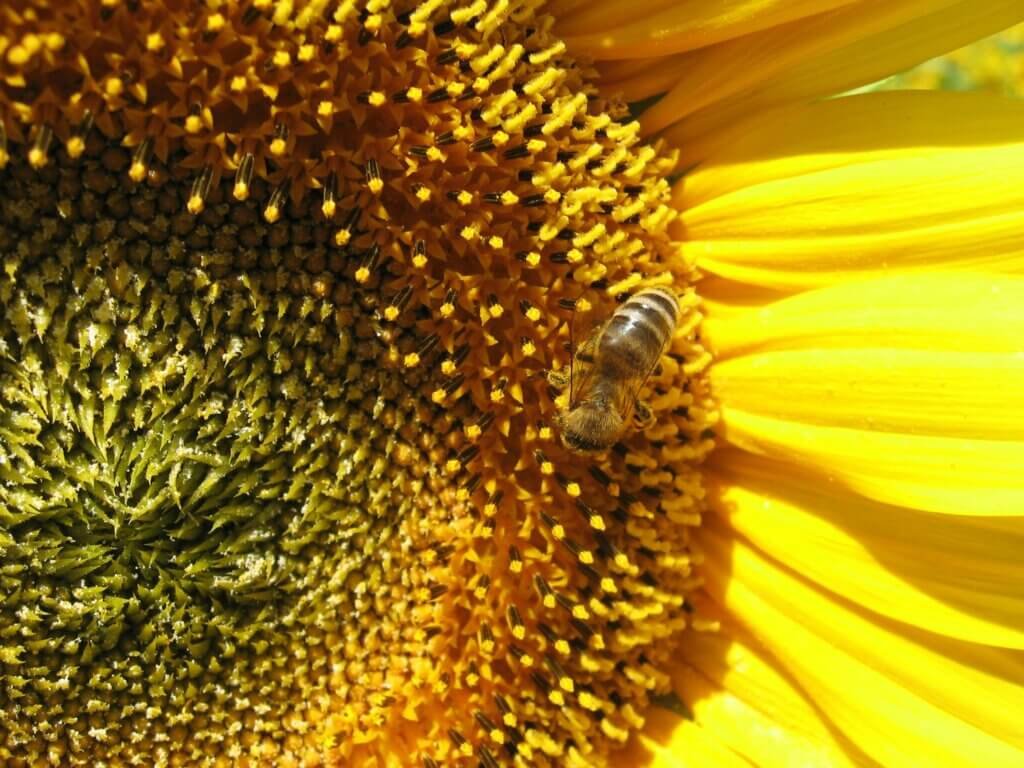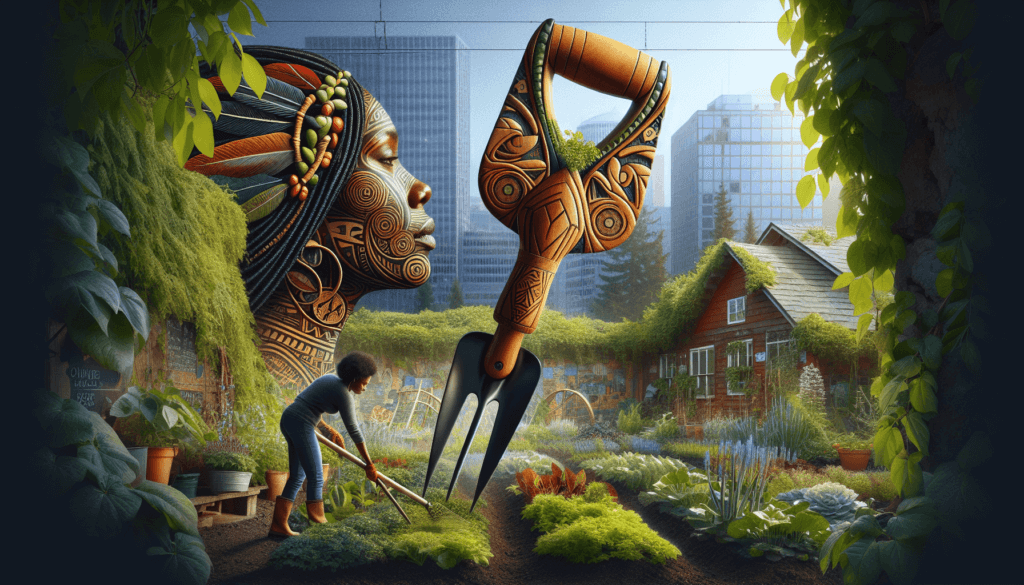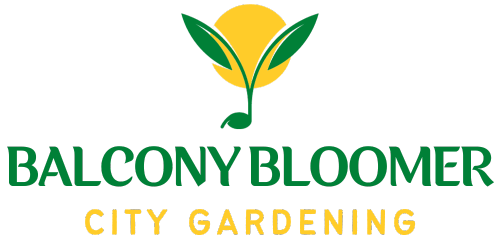Have you ever wondered how to honor and incorporate Indigenous knowledge in urban gardening? Discover the transformative power of incorporating Indigenous Land Stewardship Principles in Urban Gardens. This article explores the importance of recognizing and respecting traditional ecological knowledge and its deep connection to the land. By incorporating these principles, we can create sustainable and culturally rich urban gardens that not only provide nourishment, but also foster a sense of community and connection to the land. Join us on this journey of embracing Indigenous land stewardship practices and cultivating a more inclusive and sustainable approach to urban gardening.
Understanding Indigenous Land Stewardship Principles
Definition of Indigenous Land Stewardship
Indigenous Land Stewardship refers to the practices and principles employed by Indigenous peoples in managing and caring for their land and natural resources. It is a holistic and interconnected approach that encompasses not only the physical aspects of land management but also the spiritual, cultural, and social dimensions. Indigenous Land Stewardship recognizes the profound connection between Indigenous communities and the land, and acknowledges the inherent knowledge and wisdom held by these communities in ensuring the well-being of the environment.
Key principles of Indigenous Land Stewardship
Indigenous Land Stewardship is guided by several key principles that shape the approach taken by Indigenous peoples in caring for the land. These principles include:
- Respect for all living beings: Indigenous communities view the land and its resources as interconnected systems where all living beings play a vital role. They prioritize the well-being of the entire ecosystem and strive to maintain a harmonious relationship with nature.
- Intergenerational responsibility: Indigenous land stewardship recognizes the responsibility of current generations to care for the land and preserve it for future generations. It involves passing down knowledge, traditions, and practices to ensure the continuity of sustainable land management practices.
- Reciprocity and balance: Indigenous peoples understand the importance of maintaining a reciprocal relationship with the land. They give back to the land what they take, ensuring a balance between resource extraction and conservation.
- Holistic approach: Indigenous Land Stewardship considers not only the ecological aspects of land management but also the cultural, spiritual, and social significance of the land to Indigenous communities. It recognizes the inseparable connection between land, people, and culture.
Importance of Urban Gardens
Benefits of Urban Gardens
Urban gardens play a vital role in promoting environmental sustainability, food security, and community well-being. They serve as spaces for growing fresh produce, fostering a sense of community, and reconnecting people with nature. Some key benefits of urban gardens include:
- Access to fresh and nutritious food: Urban gardens enable individuals and communities to grow their own fruits, vegetables, and herbs, ensuring a local and sustainable food source. This can be particularly important in food-insecure areas where access to fresh produce is limited.
- Environmental benefits: Urban gardens contribute to the greening of urban spaces, improving air quality, reducing the urban heat island effect, and mitigating the impact of climate change. They promote biodiversity by providing habitats for beneficial insects and pollinators.
- Community building and social cohesion: Urban gardens create spaces for community members to come together, share knowledge, and foster social connections. They offer opportunities for skill-building, learning, and sharing resources, strengthening community resilience.
- Physical and mental well-being: Engaging in urban gardening promotes physical activity and outdoor time, contributing to improved health and well-being. The act of gardening also has therapeutic benefits, reducing stress and promoting mindfulness.
Challenges and Opportunities in Urban Gardening
While urban gardening offers numerous benefits, there are also challenges to be considered. Limited space, contaminated soil, lack of access to resources, and zoning restrictions can present obstacles to successful urban gardening initiatives. However, with proper planning and community engagement, these challenges can be overcome.
Opportunities for urban gardening lie in engaging diverse community stakeholders, promoting sustainable practices, and incorporating Indigenous Land Stewardship principles. By recognizing and incorporating Indigenous knowledge and practices, urban gardens can become more resilient, culturally respectful, and inclusive spaces.

Recognizing Indigenous Knowledge and Practices
Indigenous Knowledge Systems
Indigenous knowledge systems encompass the collective knowledge, wisdom, and practices developed and passed down through generations of Indigenous communities. This knowledge is closely tied to the land, incorporating ecological knowledge, traditional land management practices, spiritual beliefs, and cultural traditions. Indigenous knowledge systems recognize the interdependence of all living beings and provide holistic approaches to land stewardship.
Traditional Land Management Practices
Indigenous communities have a rich history of practicing sustainable land management techniques that promote biodiversity, regenerate ecosystems, and ensure the long-term health of the land. These practices include controlled burning, rotational grazing, seed saving, and the cultivation of traditional food crops. Traditional land management practices are often rooted in Indigenous knowledge systems and are guided by principles of reciprocity, balance, and intergenerational responsibility.
Relevance of Indigenous Practices in Urban Gardening
Incorporating Indigenous practices in urban gardening can contribute to the sustainability, resilience, and cultural inclusivity of these spaces. Indigenous approaches to land stewardship emphasize the importance of preserving biodiversity, utilizing regenerative agriculture techniques, and promoting the use of native plants and traditional food crops. By integrating Indigenous knowledge and practices, urban gardens can become spaces that honor and celebrate diverse cultures, promote environmental stewardship, and reconnect people with the land.
Creating Culturally Respectful and Inclusive Spaces
Acknowledging and Learning from Indigenous Cultures
Creating culturally respectful and inclusive spaces in urban gardens begins with acknowledging and learning from Indigenous cultures. This involves recognizing the significance of Indigenous land stewardship practices, traditions, and knowledge systems. By actively seeking to understand and appreciate Indigenous cultures, urban garden initiatives can foster mutual respect, cultural exchange, and collaboration.
Collaborating with Indigenous Communities
Effective collaboration with Indigenous communities is essential in creating culturally respectful and inclusive spaces. This collaboration should be characterized by mutual trust, shared decision-making, and open communication. It is important to engage Indigenous community members in the planning, design, and management of urban gardens, ensuring that their perspectives, needs, and aspirations are fully considered.
Applying Cultural Sensitivity in Garden Design and Management
Cultural sensitivity should be at the forefront of garden design and management in order to create welcoming and inclusive spaces. This includes incorporating elements of Indigenous culture, such as artwork, symbols, and traditional plantings, in the garden design. It also involves providing educational opportunities for visitors to learn about Indigenous cultures, land stewardship practices, and traditional knowledge. Respect for sacred sites, ceremonial protocol, and traditional harvesting practices should be integrated into the management of urban gardens.

Incorporating Regenerative Agriculture Techniques
Basic Principles of Regenerative Agriculture
Regenerative agriculture is an approach to farming and land management that seeks to restore and enhance the health of ecosystems, improve soil fertility, and promote biodiversity. It focuses on building soil organic matter, minimizing the use of synthetic inputs, and enhancing ecosystem services. Some basic principles of regenerative agriculture include:
- Building soil health: Regenerative agriculture aims to increase soil organic matter, improve soil structure, and enhance nutrient cycling. Practices such as cover cropping, crop rotation, and composting are employed to build healthy and resilient soils.
- Minimizing chemical inputs: Regenerative agriculture encourages the minimal use of synthetic fertilizers, pesticides, and herbicides. Organic and natural inputs are preferred to minimize the environmental impact and promote the health of the soil and surrounding ecosystems.
- Enhancing biodiversity: Regenerative agriculture recognizes the importance of diverse plant and animal species in maintaining ecosystem balance. By promoting biodiversity, regenerative agriculture fosters natural pest control, pollination, and soil fertility.
- Promoting long-term sustainability: Regenerative agriculture takes a systems approach, considering the long-term impacts of farming practices on soil, water, biodiversity, and community well-being. It aims to create farming systems that are self-sustaining, resilient, and regenerative.
Indigenous Perspectives on Regenerative Agriculture
Indigenous peoples have long practiced regenerative agriculture techniques that promote ecosystem health, biodiversity, and soil fertility. These techniques, often rooted in traditional land management practices, include agroforestry, intercropping, and the use of natural fertilizers. Indigenous perspectives on regenerative agriculture emphasize the importance of working in harmony with nature, respecting indigenous seeds and traditional planting techniques, and prioritizing the well-being of future generations.
Implementing Regenerative Practices in Urban Gardens
Urban gardens can integrate regenerative agriculture techniques by embracing practices such as composting, cover cropping, and organic pest control methods. These practices help build healthy soils, enhance biodiversity, and reduce synthetic inputs. By adopting regenerative agriculture principles, urban gardens can become vibrant and resilient spaces that contribute to the overall health and sustainability of urban environments.
Honoring Indigenous Plant Species and Traditional Foods
Role of Native Plants in Indigenous Culture
Native plants have deep cultural significance to Indigenous communities as they are often used for food, medicine, ceremonies, and crafts. They hold a wealth of traditional knowledge associated with their cultivation, harvest, and use. Honoring and promoting the use of native plants in urban gardens helps preserve Indigenous cultural heritage, promote biodiversity, and reconnect people with the land.
Importance of Biodiversity in Urban Gardens
Biodiversity is crucial for the resilience and sustainability of urban gardens. By incorporating a variety of plant species, including native plants, urban gardens create habitats for beneficial insects, pollinators, and other wildlife. Biodiversity enhances ecosystem services, promotes natural pest control, and contributes to the overall health of the garden ecosystem.
Promoting and Preserving Traditional Food Crops
Incorporating traditional food crops in urban gardens not only provides a direct source of fresh and culturally significant food but also preserves and promotes Indigenous food systems. Traditional food crops are often well-adapted to local climates and growing conditions, making them suitable choices for urban environments. By growing and sharing traditional food crops, urban gardens can support food sovereignty, cultural resilience, and community well-being.

Promoting Environmental Justice and Social Equity
Addressing Historical and Ongoing Marginalization of Indigenous Communities
Promoting environmental justice and social equity in urban gardening requires addressing the historical and ongoing marginalization of Indigenous communities. This includes acknowledging the impacts of colonization, dispossession of land, and systemic inequalities faced by Indigenous peoples. Urban garden initiatives should actively work to dismantle barriers, promote inclusive access, and ensure Indigenous voices and perspectives are heard and respected.
Inclusive Access and Participation in Urban Gardens
Creating inclusive urban garden spaces involves ensuring equitable access and participation for all community members, including Indigenous peoples. This may require addressing barriers such as lack of transportation, language barriers, and financial constraints. Engaging with local Indigenous communities and organizations can help identify and overcome these challenges, creating opportunities for meaningful involvement and empowerment.
Engaging Indigenous Youth and Community Members
Engaging Indigenous youth and community members in urban gardening initiatives is crucial for promoting environmental stewardship, cultural connections, and intergenerational learning. By providing educational programs, mentorship opportunities, and platforms for youth leadership, urban gardens can empower the next generation of Indigenous land stewards and cultivate a sense of pride and connection to the land.
Building Relationships with Indigenous Communities
Respecting Protocols and Protocols
Building relationships with Indigenous communities should be grounded in respect for protocols and traditional practices. This includes acknowledging and following appropriate protocols when engaging with Indigenous knowledge holders, cultural ceremonies, and sacred sites. It is essential to seek guidance from Indigenous community members and organizations to navigate these protocols and build relationships based on trust and mutual understanding.
Establishing Partnerships and Collaborations
Establishing partnerships and collaborations with Indigenous communities is essential for the success of urban gardening initiatives. By working together, urban gardens can benefit from Indigenous knowledge, traditional practices, and cultural expertise. Collaborative relationships should be based on mutual learning and benefit-sharing, with a focus on long-term sustainability and community well-being.
Sharing Resources and Knowledge
Successful collaboration with Indigenous communities involves sharing resources, knowledge, and experiences. This can include sharing land, equipment, and other resources to support Indigenous-led urban gardening projects. It also involves sharing knowledge and experiences in sustainable land management, cultural preservation, and community engagement. By fostering knowledge exchange and reciprocity, urban gardens can become vibrant hubs of learning and collaboration.

Educational Programs and Workshops
Offering Cultural Education and Workshops
Educational programs and workshops are powerful tools for promoting cultural education, awareness, and appreciation in urban gardens. These programs can provide opportunities for visitors to learn about Indigenous cultures, traditions, and land stewardship practices. Workshops on traditional gardening techniques, seed saving, and plant medicine can offer hands-on experiences and foster a deeper connection to the land.
Sharing Traditional Knowledge and Practices
Sharing traditional knowledge and practices in urban gardening initiatives can be achieved through mentorship programs and intergenerational learning. Indigenous elders and knowledge holders can play a vital role in passing down traditional knowledge related to land stewardship, plant medicine, and food cultivation. By creating spaces for these knowledge-sharing opportunities, urban gardens can help preserve Indigenous knowledge and promote intercultural dialogue.
Empowering Communities through Education
Educational programs in urban gardens can empower communities, particularly Indigenous communities, by providing skills and knowledge for self-sufficiency, food sovereignty, and environmental stewardship. These programs can offer training in gardening techniques, seed saving, sustainable land management, and entrepreneurship. By equipping community members with practical skills and knowledge, urban gardens can contribute to community empowerment and resilience.
Case Studies of Successful Indigenous Land Stewardship in Urban Gardens
Examples of Successful Collaborations
Numerous examples across the globe demonstrate the successful incorporation of Indigenous land stewardship principles in urban gardens. For instance, the “Xwi7xwa Community Garden” in Vancouver, Canada, collaborates with local Indigenous organizations to provide space for growing traditional food crops, cultural events, and educational programs. The “Native American Sustainable Housing Initiative” in Santa Fe, USA, incorporates Indigenous knowledge and practices in sustainable housing design, integrating gardens and traditional food systems.
Lessons Learned from Indigenous-Led Urban Gardens
Indigenous-led urban gardens offer valuable lessons on the importance of community engagement, cultural respect, and sustainability. These initiatives prioritize collaborative decision-making, community ownership, and cultural preservation. Lessons learned include the significance of establishing long-term partnerships, providing mentorship opportunities, and creating spaces that nurture cultural connections and intergenerational learning.
Impacts on Community Well-being and Resilience
Indigenous-led urban gardens have a profound impact on community well-being and resilience. Beyond providing access to fresh food, these gardens foster cultural pride, community cohesion, and social connections. They contribute to the physical and mental well-being of community members, offer spaces for cultural revitalization, and support economic empowerment through the sale of traditional products. Indigenous-led urban gardens promote environmental stewardship, cultural sovereignty, and the preservation of Indigenous knowledge for future generations.
Incorporating Indigenous land stewardship principles in urban gardens is an essential step towards creating sustainable, culturally respectful, and inclusive spaces. By recognizing and valuing Indigenous knowledge, traditional practices, and cultural heritage, urban gardens can become vibrant hubs of environmental education, community empowerment, and intercultural exchange. Through collaborative partnerships and a commitment to social equity, urban gardens have the potential to promote environmental justice, food security, and community resilience while honoring and celebrating the rich diversity of Indigenous cultures.



